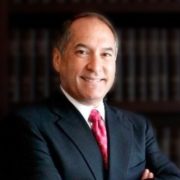On the heels of the US Supreme Court’s decision in US vs. Windsor (which struck down DOMA’s definition of marriage as being a legal relationship between one man and one woman), the Board of Immigration Appeals (BIA) issued a precedent (or binding) decision on July 17, 2013 (Matter of Zeleniak), confirming that same-sex couples are entitled to the same immigration benefits as opposite-sex couples.
This decision is important because US vs Windsor did not deal specifically with immigration benefits (it dealt with estate taxes). This BIA decision now leaves no doubt that the death of DOMA provides the same immigration benefits to same-sex couples as are available to opposite-sex couples. (In fact, it is the BIA that hears appeals of denials of family petitions (Form I-130), such that the USCIS must follow and abide by BIA precedent decisions).
In the Zeleniak case, a same-sex couple had married in Vermont, where same sex marriages are recognized, but the USCIS denied the spousal petition because of DOMA’s definition of “marriage.” The BIA ultimately ruled that, “The Supreme Court’s ruling in Windsor has therefore removed section 3 of the DOMA as an impediment to the recognition of lawful same-sex marriages and spouses if the marriage is valid under the laws of the State where it was celebrated.” In other words, if the same sex-marriage is valid in the place where it was celebrated, it will be recognized for various immigration petitions and benefits. In fact, the BIA listed a number of such benefits such as:
K – 1 fiancé and fiancée visas
Immigrant visa petitions, such as spousal petitions, whether the petitioner is a citizen or still a green card holder.
Hardship waivers (such as fraud waivers) where it is necessary to demonstrate “extreme hardship” on a “qualifying relative” such as a spouse. Same-sex spouses are now considered qualifying relatives.
In addition, same-sex spouses could qualify for “derivative status” on certain family, employment, and non-immigrant petitions. For example, if one spouse is under petition by an employer, his or her spouse can also be added on as a derivative beneficiary. Similarly, if one spouse has an H – 1B visa, the other spouse could possibly qualify for an H –4 visa.
However, the BIA noted that, just like with opposite-sex marriages, same-sex couples must also establish that the marriage is “bona fide,” meaning that it is real and not “fixed.”
But please note that while the LGBT community is now entitled to the same rights and benefits as opposite-sex couples, they will also be subject to the same requirements, laws, and regulations, such as if they had committed fraud, they may need to file a fraud waiver. If they are out of status, entered as a crewman, entered without inspection, they may need the benefit of Section 245(i). What kind of proof is necessary to demonstrate that the relationship is “bona fide”? If you are in a same-sex relationship and believe that you could be eligible for immigration benefits, you should definitely seek the advice of an immigration attorney who can evaluate your situation and determine your eligibility.
* * *
Michael J. Gurfinkel is licensed, and an active member of the State Bar of California and New York. All immigration services are provided by, or under the supervision of, an active member of the State Bar of California. Each case is different. The information contained herein including testimonials, “Success Stories,” endorsements and re-enactments) is of a general nature, and is not intended to apply to any particular case, and does not constitute a prediction, warranty, guarantee or legal advice regarding the outcome of your legal matter. No attorney-client relationship is, or shall be, established with any reader.
WEBSITE: www.gurfinkel.com
Call Toll free to schedule a consultation for anywhere in the US:
(866)—GURFINKEL
Four offices to serve you: LOS ANGELES · SAN FRANCISCO · NEW YORK · PHILIPPINES






